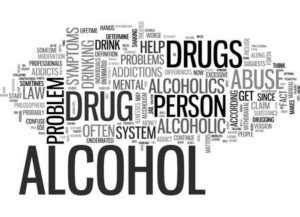Addiction is a disease. It is a condition that affects the proper functioning of the brain and body and can be brought about at any age by a number of different factors including a person’s environment, lifestyle or genetic predisposition.

In order to fully understand addiction, we must first understand how the brain functions. When we experience something that we find pleasurable, the brain releases chemicals (such as dopamine, serotonin, and norepinephrine). The release of these chemicals can increase feelings of calmness, euphoria, relaxation and can cause excitement and feelings of anticipation as well. The cause of addiction, whether it be to drugs, alcohol, tobacco, gambling or even shopping can all cause these same chemicals to be released, often in high amounts, and will result in these feelings of pleasure. Over time, a person can become dependant on this euphoric feeling. The parts of the brain that is responsible for reward, memory, and motivation are affected and a person becomes unable to properly function without fulfilling their addiction. This usually means that they will begin to crave the addicted substance more frequently and in larger quantities.
What are the symptoms of addiction?
It can present itself in many ways, depending on its cause, but some predominant symptoms remain the same. Most people suffering from addiction will exhibit symptoms such as increased use of the substance, loss of interest in social activities, poor attendance at work or school, financial problems and a change in sleeping and eating habits. They may also be in denial about their addiction, changing the subject when asked or they may begin to lie about their habits.

Treatment options

Addiction is considered a chronic disease which means that there is no cure. However, with proper treatment, addiction can be managed and controlled. With addiction becoming a much more common issue in today’s society, there are choices available for those seeking help.
Prescription drugs are often a successful option and can help to combat the physiological effects of addiction. They can decrease the urge to partake in the addictive habit and they can also help to decrease the severity of any withdrawal symptoms that might occur.
Counseling is another treatment choice that has many benefits in aiding those suffering from an addiction. Talking about past traumas that may be contributing to the addictive habit and working through behavioral therapy techniques can be vital in helping someone to recover.
In almost every case, it is important to combine both types of therapies in order to treat addiction from all angles and to give the best possible chance of recovery.

Addiction is a disease with no cure and therefore relapse is always a possibility. Staying away from those who enable addiction and situations that promote addictive behavior is vital for long-term success. Often it may take many attempts to finally quit for good. The key to successfully overcoming an addiction is staying positive and never giving up.

